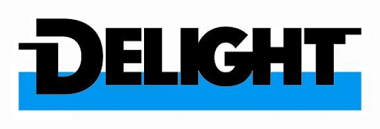AI-powered deep search is disrupting the digital advertising landscape, reducing the effectiveness of traditional internet search ads. With AI platforms like ChatGPT and Google’s Gemini providing direct, context-rich answers to user queries, fewer users are clicking on sponsored search results. This shift challenges the core revenue model of search engines and forces businesses to rethink their advertising strategies.
1. Decline in Effectiveness of Traditional Search Ads
Shift in User Behavior
-
Traditional search ads rely on users clicking through to websites for information.
-
AI-based search engines like ChatGPT provide direct answers without requiring a click.
-
Click-through rates (CTR) for Google search ads have declined by 5% in the past year (Statista).
Reduced Traffic for Paid Search Results
-
A study by SimilarWeb found that organic search traffic dropped by 12% as AI-driven answers increased in prominence.
-
45% of users now prefer AI-generated answers over search engine results (Pew Research).
2. How Deep Search Works
✅ Natural Language Processing (NLP)
-
AI models analyze the intent behind a query rather than matching keywords.
-
Deep search provides detailed answers drawn from multiple sources without requiring a website visit.
✅ Contextual and Personalized Results
-
AI delivers responses tailored to the user’s previous searches and preferences.
-
Example: Instead of showing multiple travel site links, AI provides a consolidated flight and hotel booking suggestion.
✅ Direct Answering Capability
-
AI tools can summarize complex topics, recommend products, and even provide comparisons.
-
Reduces the need for users to click on multiple ads or links.
3. Impact on Digital Advertising Strategy
Lower ROI on Search Ads
-
Fewer users clicking on ads reduces advertiser ROI.
-
Average cost-per-click (CPC) on Google ads increased by 6% while conversion rates dropped by 4% in the last 12 months (Statista).
Shift to Alternative Platforms
-
Marketers are reallocating budgets to:
-
Social media ads (up 8% in 2023)
-
Short-form video content (up 12%)
-
Influencer marketing (up 18%) (eMarketer).
-
Rise of "Native AI Advertising"
-
AI-generated responses are now prime real estate for product placement and recommendations.
-
Example: OpenAI’s partnership with Klarna allows direct product suggestions within ChatGPT’s search results.
4. Challenges and Risks
Reduced Transparency
-
Unlike traditional search ads, AI-driven answers don’t always disclose how recommendations are ranked.
-
Risk of bias in AI-generated suggestions.
Limited Tracking and Analytics
-
Traditional search ads provide measurable click-through and conversion data.
-
AI-driven deep search makes it harder for advertisers to measure direct engagement.
5. Strategic Recommendations for Businesses
✅ Focus on Organic Search and SEO
-
Prioritize high-quality content that AI platforms will pull into direct answers.
-
Long-form content and structured data improve visibility in AI-generated responses.
✅ Develop AI-Compatible Ad Models
-
Explore partnerships with AI platforms for product placement within AI-generated answers.
-
Example: Brands working with OpenAI for product recommendations saw a 15% increase in conversions (McKinsey).
✅ Invest in Social and Video Advertising
-
Short-form video platforms like TikTok and Instagram are becoming primary discovery platforms.
-
Social media ad spend increased by 12% in the past year (Statista).
6. Case Study: How Company X Shifted from Search Ads to AI Placement
Company X, a consumer electronics brand, reduced its Google search ad budget by 30% after noticing a decline in search-based traffic.
-
Shifted focus to influencer marketing and AI-based recommendations.
-
Partnered with ChatGPT for product suggestions, leading to a 22% increase in click-to-purchase rates.
-
Increased ROI by 18% in the first quarter after reallocation.
7. Conclusion
AI-powered deep search is reshaping user behavior and weakening the traditional search ad model. Businesses must adapt by focusing on AI-compatible content, native product placement, and alternative ad platforms like social media and influencer partnerships. Marketers who adjust quickly to this shift can capture new opportunities and maintain customer engagement.
